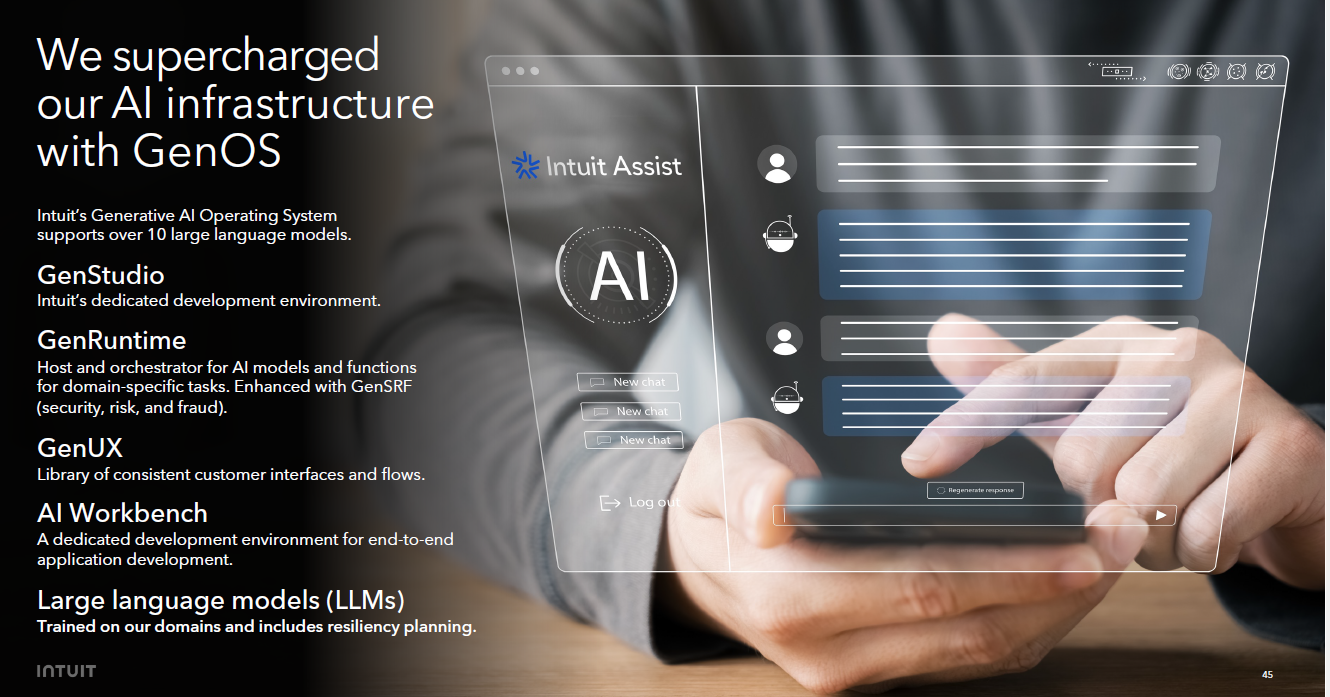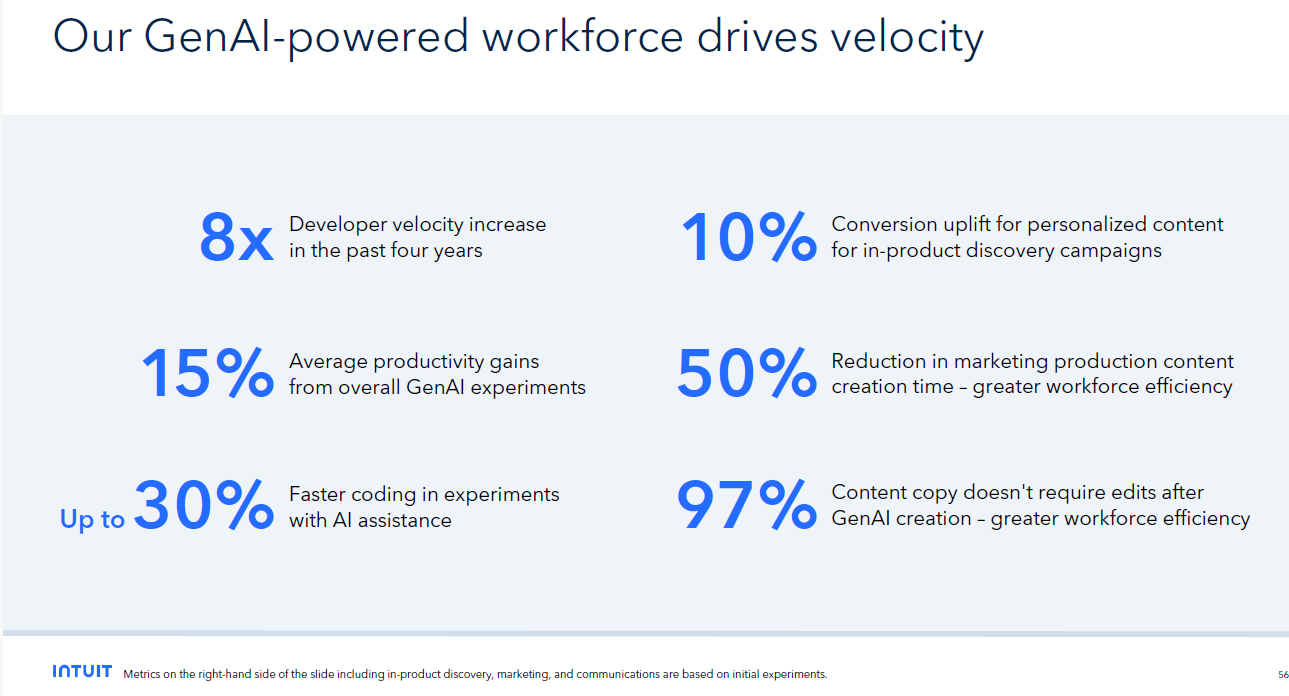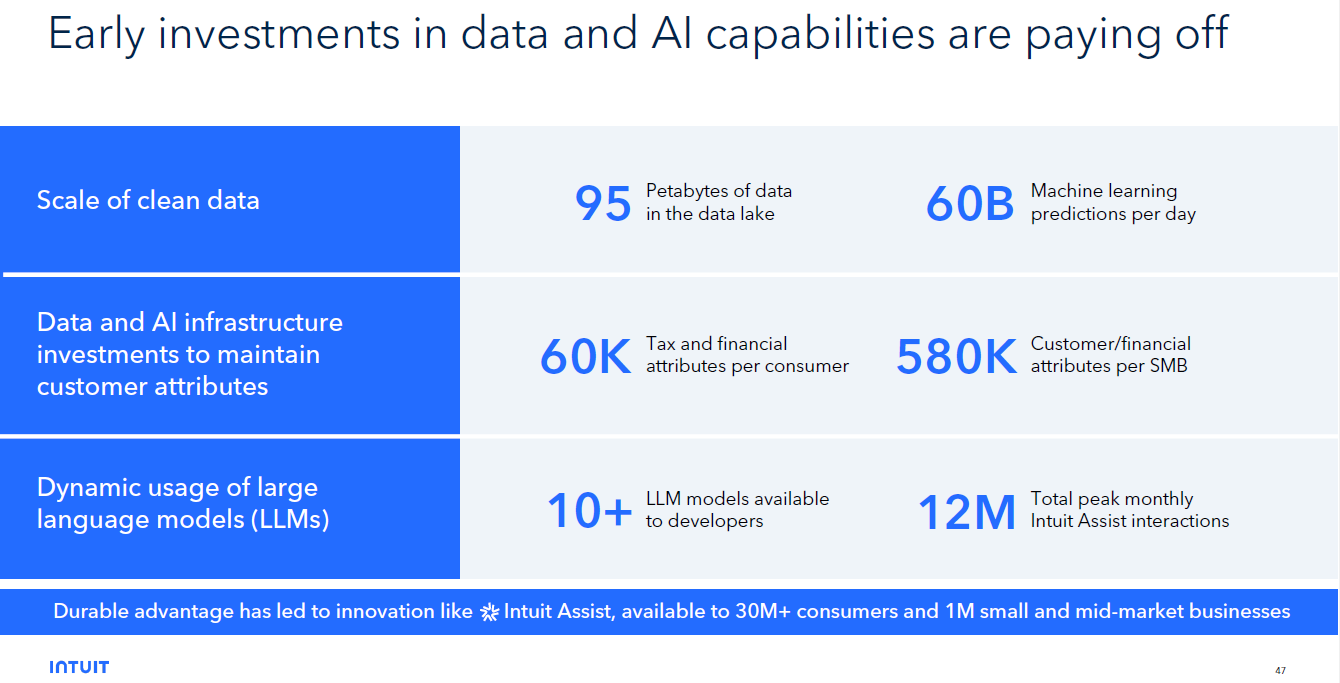Intuit is operating on one data and AI platform that enables it to select up to 10 large language models for various consumer and business use cases via its Generative AI Operating System (GenOS).
The ability to select multiple large language models (LLMs) gives Intuit the ability to leverage genAI for use cases with a few clicks and build in redundancy. Intuit is looking to leverage a unified data and AI platform to solve customer problems and bring in human experts when needed.
Speaking at Intuit's Investor Day, CTO Alex Balazs, said GenOS is transformative to the company's platform plans. Intuit made a big bet five years ago on one data platform and AI as a way to expand its total addressable market. Now Intuit TurboTax, Credit Karma, QuickBooks and Mailchimp run on a unified platform as well as GenOS, which powers Intuit Assist.
"Developers leveraging our platform and GenOS now have access to more than 10 LLMs," said Balazs. "They're able to easily select the right large language model that solves the specific customer use case. GenOS also allows us to seamlessly switch between LLMs to provide resiliency so the customer has a smooth experience."
- Enterprises leading with AI plan next genAI, agentic AI phases
- 13 artificial intelligence takeaways from Constellation Research’s AI Forum
- Intuit sees 'green shoots' from its generative AI strategy
- Intuit’s bets on data, AI, AWS pay off ahead of generative AI transformation (PDF)
Intuit also recently announced AI Workbench, a dedicated development environment for AI native experiences, said Balazs. Earlier this month, Intuit outlined enhancements to GenOS including AI Workbench as well as updates to GenStudio, GenRuntime and GenUX.

According to Intuit, GenOS AI Workbench includes an LLM Leaderboard for use cases, prompt management, an automated evaluation service for LLMs and traceability for prompt workflows. Other updates include:
- An LLM sandbox in GenStudio that includes Anthropic Claude via Amazon Bedrock, Gemini from Google Cloud, Llama from Meta AI and Mistral AI to complement custom LLMs and OpenAI GPT models via Microsoft Azure.
- GenRuntime, a layer that includes GenOrchestrator to plan, execute and retrieve knowledge and tools for agentic workflows.
- GenSRF (security, risk and fraud) that has guardrails for genAI deployments.
- GenUX, which includes more than 140 new UX components, widgets and patterns for developments.
The company's strategy highlights how enterprises leading in genAI are building platforms that are able to hot swap models as they advance. Intuit has built its infrastructure on Amazon Web Services and said last year at re:Invent that GenOS uses Amazon Bedrock as well as multiple services including Sagemaker.
Intuit's selection of models in GenOS is a subset of what's available on Amazon Bedrock. For instance, Meta has more than 10 Llama models available on Amazon Bedrock with providers such as A121, Anthropic, Cohere and Mistral offering more than a handful of foundational models.

This model choice is also increasingly being offered by software as a service providers, which are packaging a selection of models that can be used to build AI agents. Demonstrations of Salesforce's Agentforce platform highlighted the ability to select models to build agents.
Model selection is a key cog in what Balazs calls Intuit's durable advantage--its data and AI platform and ability to enable machine learning, natural language processing and LLM development to embed fintech throughout its environment.
Balazs said Intuit's model agnostic approach allows the company to future proof its platform as it chases its five big bets: Revolutionize speed to benefit, connect people to experts, unlock smart money decisions, be the center of small business growth and disrupt the mid-market.
"We're going to continue to innovate and look ahead and determine the best way to serve our customers, especially as the AI landscape continues to rapidly evolve. Almost every day, there's some type of announcement of some new AI capability."
Indeed, Intuit demonstrated the use of digital avatars as a way to provide guidance and insights to customers. Balazs said that avatars will help people retain information and learn. The goal would be to couple LLMs, genAI and avatars to deliver human-like experiences that seamlessly hand off to human experts.



